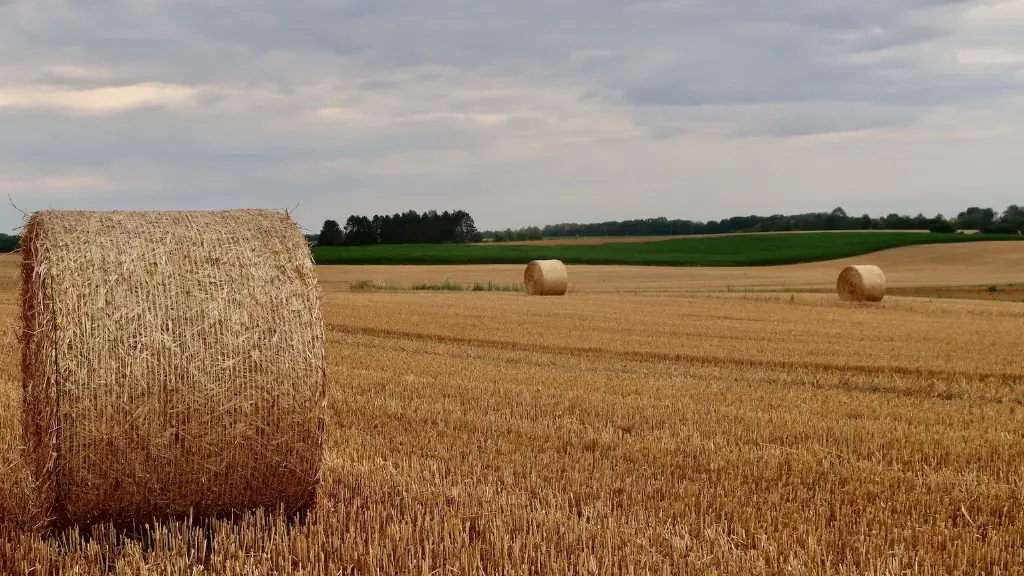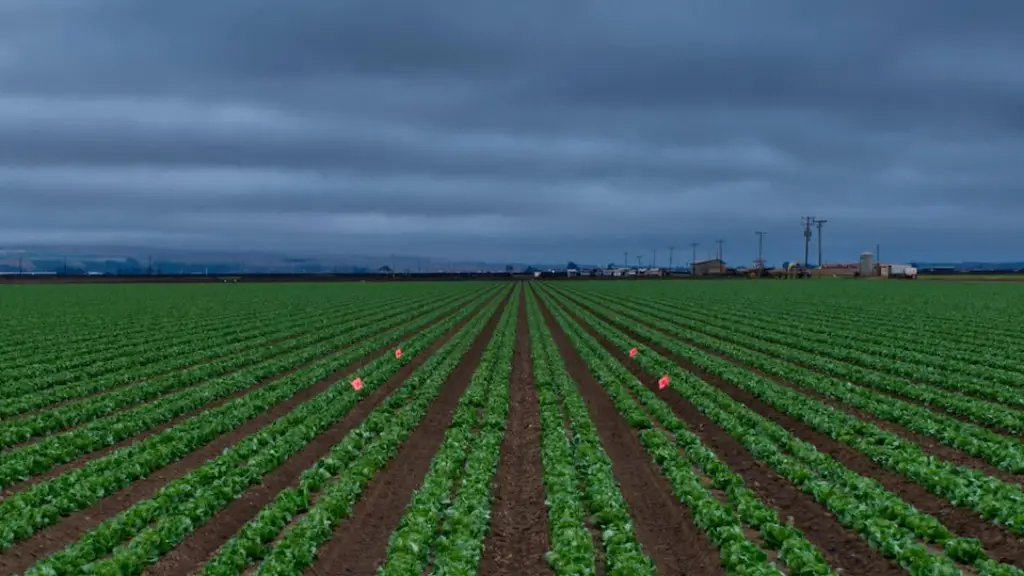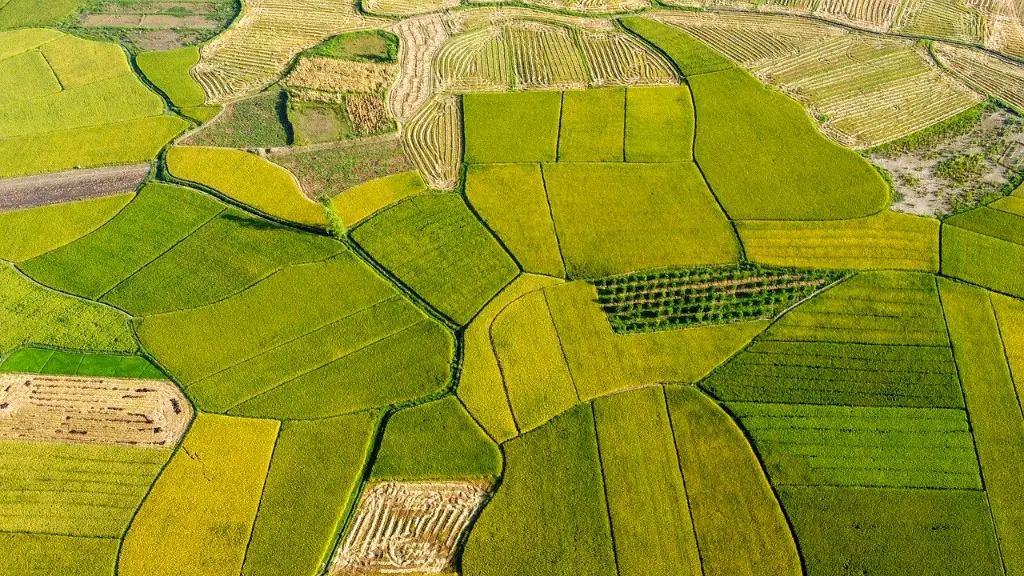Agriculture is the process of producing food, feed, fiber and other desired products by the cultivation of certain plants and the raising of domesticated animals. Agriculture affects society by providing food and jobs. It also affects the economy by providing products that can be traded.
Agricultural production plays a significant role in the economy and provides employment opportunities for a large number of people. It also affects the way we live, the food we eat, and the environment we live in.
How do agricultural practices affect the environment and society?
Agriculture is the leading source of pollution in many countries. Pesticides, fertilizers and other toxic farm chemicals can poison fresh water, marine ecosystems, air and soil. They also can remain in the environment for generations.
Toxic chemicals used in agriculture can enter the environment through a variety of pathways. They may be released into the air as emissions from factories that manufacture them. They may leach into groundwater or runoff into surface water. They may be applied directly to crops, soil or water.
Once in the environment, these chemicals can have a range of harmful effects. They can poison aquatic life, contaminate drinking water supplies and contribute to air pollution. They can also build up in the food chain, with potentially harmful effects on human health.
There are a number of ways to reduce the pollution caused by agriculture. Farmers can use less toxic chemicals, or apply them more carefully. Governments can regulate the use of these chemicals, and provide financial incentives for farmers to adopt more environmentally friendly practices.
Agriculture is important for many reasons. It provides food, clothing, and shelter for people. It also helps people to enjoy a higher quality of life.
How is agriculture affecting us
This means that agriculture, food, and related industries are some of the most important sectors of the US economy. They play a vital role in ensuring that the country has a strong and prosperous economy.
There is a growing movement to shift away from large-scale, conventional farming in favor of more sustainable practices. Sustainable agriculture focuses on diversifying crops, using organic methods, and relying on renewable resources. This type of agriculture is better for the environment and can help to mitigate climate change. It also helps to preserve soil fertility and reduce pollution.
Agricultural practices have had a profound effect on society. They have changed the way we eat, the role of women in production, and the economic purpose of agriculture.
Agriculture has always been a vital part of human society. It is the process of producing food, fiber, and other materials through the cultivation of plants and animals. Agriculture has played a significant role in shaping our world. It has influenced our diets, the role of women in society, and the economy.
The Agricultural Revolution was a period of time when new technologies and techniques were developed that allowed for the more efficient production of food. This period of time saw a dramatic increase in the amount of food that could be produced, which led to a population boom. The Agricultural Revolution also had a major impact on the role of women in society. Prior to the Agricultural Revolution, women were primarily responsible for gathering food. However, with the development of new technologies and techniques, women began to play a more significant role in production. This change in the role of women had a profound impact on society, as it allowed women to participate in the economy and to have a greater voice in the political sphere.
Today, agriculture is still a vital part of our society. It provides us with food,
1. Agriculture is the main source of raw materials for many industries.
2. Agriculture is important to international trade.
3. Agriculture plays a big role in a nation’s revenue.
4. Agriculture provides employment for many people.
5. Agriculture is crucial to a country’s development.
6. Agriculture can help heal the environment.
7. Agriculture goes hand-in-hand with war.
8. Agriculture is a way of life for many people.
How does agriculture affect the economy?
The agriculture industry is a driver of economic growth for the United States and creates a broader market with related industries. The impact of agriculture is felt in more places than the grocery store and wholesale food supply. Consider industries like food sales, nutrition research, horticulture, and restaurants.
The rise of settled societies and the increase in population were closely connected to the early humans who began farming. With the production of enough food, they were no longer required to migrate to their food source which allowed them to build permanent structures. This included the development of villages, towns, and eventually even cities.
What are the 5 effects of agriculture
The five environmental effects of agriculture are: soil fertility loss, eutrophication of water bodies, deforestation, climate change and pesticide pollution.
Soil fertility loss: The loss of soil fertility is one of the major environmental effects of agriculture. This happens when the nutrients in the soil are used up faster than they can be replenished. As a result, the soil becomes less able to support plant growth.
Eutrophication of water bodies: Another environmental effect of agriculture is eutrophication of water bodies. This occurs when excessive nutrients from agricultural runoff enter waterways, leading to an increase in algae growth. This can result in the depletion of oxygen in the water, which can be harmful to aquatic life.
Deforestation: Deforestation is another environmental effect of agriculture. This happens when trees are removed from an area in order to make way for farmland. This can lead to a loss of habitat for wildlife, as well as a decrease in the amount of carbon dioxide that is removed from the atmosphere.
Climate change: Climate change is another environmental effect of agriculture. This happens when greenhouse gases are released into the atmosphere, resulting in a rise in the Earth’s temperature. Agriculture contributes to climate change by releasing greenhouse gases through activities
Agriculture is the foundation of civilization and any stable economy. It is the basis for food production, which is necessary for feeding a city’s population. It also provides raw materials for industry and commerce. without agriculture, it would not be possible to have a stock market, banks, university, church or army.
What are three impacts of agriculture?
The impact of agriculture on the environment is both positive and negative. On the positive side, agriculture can lead to soil erosion, water pollution, and contribute to climate change. On the negative side, it can cause deforestation.
The main benefits of urban farming are that it can lower greenhouse gas emissions, reduce the amount of energy required for food production, and minimize transportation requirements. As more and more people are becoming aware of these benefits, the popularity of urban farming is on the rise.
How does agriculture positively and negatively impact the environment
While agriculture can have negative impacts on the environment, it can also have positive impacts. For instance, agriculture can trap greenhouse gases within crops and soils, or mitigate flood risks through the adoption of certain farming practices. These positive impacts can help offset the negative impacts of agriculture, and make it a more sustainable industry.
There is a strong case to be made for investing in the agricultural sector in order to improve food security, lower rural and urban poverty, reduce inequality, and enhance environmental outcomes. The right policies and incentives are key to unlocking the potential of this sector and realizing these benefits.
The agricultural sector has a crucial role to play in food security, as it is responsible for producing the food we eat. Investing in this sector can help to improve food security by increasing production and making food more accessible and affordable.
Rural poverty is a major problem in many developing countries. Poverty reduction strategies must therefore focus on the rural economy, and the agricultural sector is a key part of this. Investing in agriculture can create jobs and incomes for rural people, helping to reduce poverty.
Inequality is a major issue in many societies, and agriculture can play a role in tackling this. For example, small-scale farmers often have less access to markets, land, and other resources than large-scale farmers. Investing in the agricultural sector can help to level the playing field and give small-scale farmers a better chance to succeed.
Finally, the agricultural sector has a major impact on the environment. Farming activities can degrade the land, damage water resources
What is the most important benefit of agriculture?
Other industries that depend on agriculture for raw materials include:
-The food and beverage industry
-The textile industry
-The cosmetic industry
-The pharmaceutical industry
Without a steady supply of raw materials from agriculture, these industries would come to a grinding halt. This is just one of the many ways in which agriculture is essential to our everyday lives.
Agriculture encompasses crop and livestock production, aquaculture, fisheries and forestry for food and non-food products. Agriculture was the key development in the rise of sedentary human civilization, whereby farming of domesticated species created food surpluses that enabled people to live in cities.
Why is agriculture important short answer
Agriculture is the main source of income for India and it accounts for a quarter of the country’s gross domestic product (GDP). It is important for the country’s food security and produces a variety of industrial raw materials. As a result, agricultural development is necessary for our country’s prosperity.
The agriculture industry plays a vital role in our world by producing the food and fabrics that we rely on. Without agriculture, our world would be a very different place. This industry impacts so many aspects of our lives and is an essential part of our economy.
Warp Up
Agriculture plays a vital role in the development of any society. It is the primary source of food and other raw materials, which are essential for the growth and progress of any civilization. Agriculture also provides employment to a large section of the population and is a major source of income for many countries. From an economic point of view, agriculture is the backbone of any society. It is also responsible for the ecological balance and helps to maintain the fertility of the soil.
In conclusion, agriculture affects society in many ways. It provides food for people and animals, it brings people together in communities, and it provides a way for people to make a living. Agriculture also has a impact on the environment. It can help to conserve resources and protect the land.





